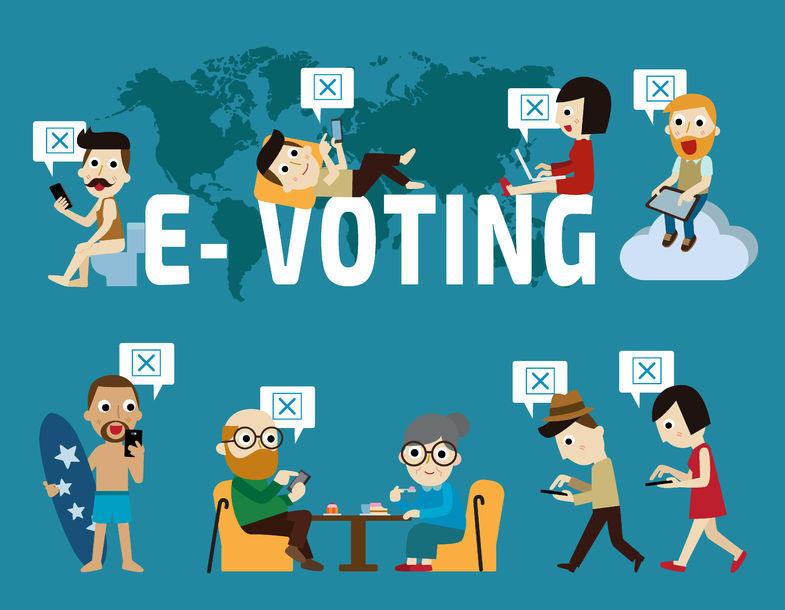
How long before all Swiss expats can use e-voting?

The use of electronic voting in Switzerland has been making slow progress amid setbacks over security concerns. The Organisation of the Swiss Abroad (OSA) is pushing for the introduction of e-voting for all Swiss expats by the next parliamentary elections in October 2019.
Critics complain that the number of cantons offering their registered Swiss citizens abroad the option of e-voting falls short of expectations.
In all, 775,000 Swiss citizens live overseas and if you consider that e-voting trials using online technology have been underway since 2004, the number of potential beneficiaries is rather modest.
About 158,000 expats from eight cantons (see map below) have the option of participating in the September 24 votes on the controversial old age pension reform, food security and some cantonal issues using a secure computer programme. Eighteen other cantons, including the populous cantons of Zurich and Vaud, do not offer e-voting.
Last April, the government decided to gradually expand e-voting, giving it a solid legal basis beyond the trial phase.
The 26 cantons are responsible for implementing an e-vote system, while the Federal Chancellery is merely coordinating and overseeing the introduction.
Swiss expats – all Swiss?
In theory, all citizens – both abroad and Swiss-based – should be allowed to use e-voting one day. At the moment, the goal is for at least two-thirds of the country’s 26 cantons to have e-voting in place by 2019, according to Federal Chancellor Walter Thurnherr.
The OSA is more ambitious. It wants all cantons to offer their registered Swiss expats the possibility to cast their vote electronically by the same date.
Two years ago, the organisation appeared to be on track with more than half the Swiss cantons offering e-voting. But in August 2015 the government put the brakes on, blocking the use of an e-vote system developed by a United States IT company.
The government said the system had serious security flaws and failed to guarantee voting secrecy. Critics have also raised concerns about attacks by computer hackers trying to manipulate the result of a vote or an election.
Popular
Currently two certified systems – one developed by a Spanish company on behalf of Swiss PostExternal link and another by canton GenevaExternal link – are in operation. Both are competing to win additional contracts from the cantons which have not yet decided.
Voting online enjoys considerable popularity. A survey published by the Centre for Democracy StudiesExternal link a year ago, found that more than two out of three respondents would like to see e-voting for all citizens.
For its part, the government says 67% Swiss expats voting in nationwide ballots prefer e-voting over other options. This means that they do not have to come back to Switzerland to cast their vote at a polling station or send in their ballot sheets through the post and risk missing the deadline.

In compliance with the JTI standards
More: SWI swissinfo.ch certified by the Journalism Trust Initiative

























You can find an overview of ongoing debates with our journalists here . Please join us!
If you want to start a conversation about a topic raised in this article or want to report factual errors, email us at english@swissinfo.ch.